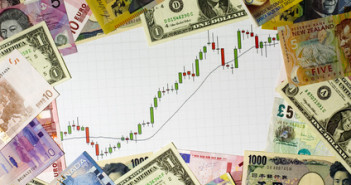The busiest time of the day in forex trading is about to expand from 4 to 5 hours. This will happen during two weeks when Daylight Savings Time comes into effect in the US and Canada, while European countries wait. Apart from this expanded busy time, some events will get closer, meaning more action. Let’s see how it works:
On Sunday, March 13th, the clock moves forward in the US and Canada. So, the New York session begins one earlier,already at 12:00 GMT. The London session begins that begins at 8:00 GMT ends at 17:00 GMT. So instead of 4 overlapping hours (13:00 to 17:00), we get 5. These hours, have the highest trade volume and include the most important American releases, which are 12:30 and 14:00 at DST.

European markets will have more time to react to the US figures before closing for the day. In addition, the markets will have less time to digest European and British events – US ones will come in faster than usual. This can be as seen in Forex Factory’s calendar. So, we can expect a lot more action in currency markets during this period of time – from March 13th to March 27th, when European countries shift to DST. Higher volatility means choppier trading and more opportunities for day traders.
Close events of high importance
- March 15th: The all important German ZEW Economic Sentiment will be released at 10:00 and it will be closely followed by the US TIC Long-Term Purchases. More action for EUR/USD.
- March 16th: British employment data at 9:30 is followed by a big load of US indicators at 13:30: building permits, housing starts, current account and PPI. More action for GBP/USD.
- March 22nd: British CBI Industrial Order Expectations at 11:00 will be followed by Canadian retail sales numbers at 12:30. For those of you trading GBP/CAD, it’s going to be choppy.
- March 25th: German Ifo Business Climate, a very survey that rocks the Euro will be published at 9:00, and final US GDP is released at 12:30.
The last time that this gap was seen was at the beginning of November, a week that consisted of the announcement of QE2, Non-Farm Payrolls and rate decisions in Europe and in other countries. That was an unforgettable week.
